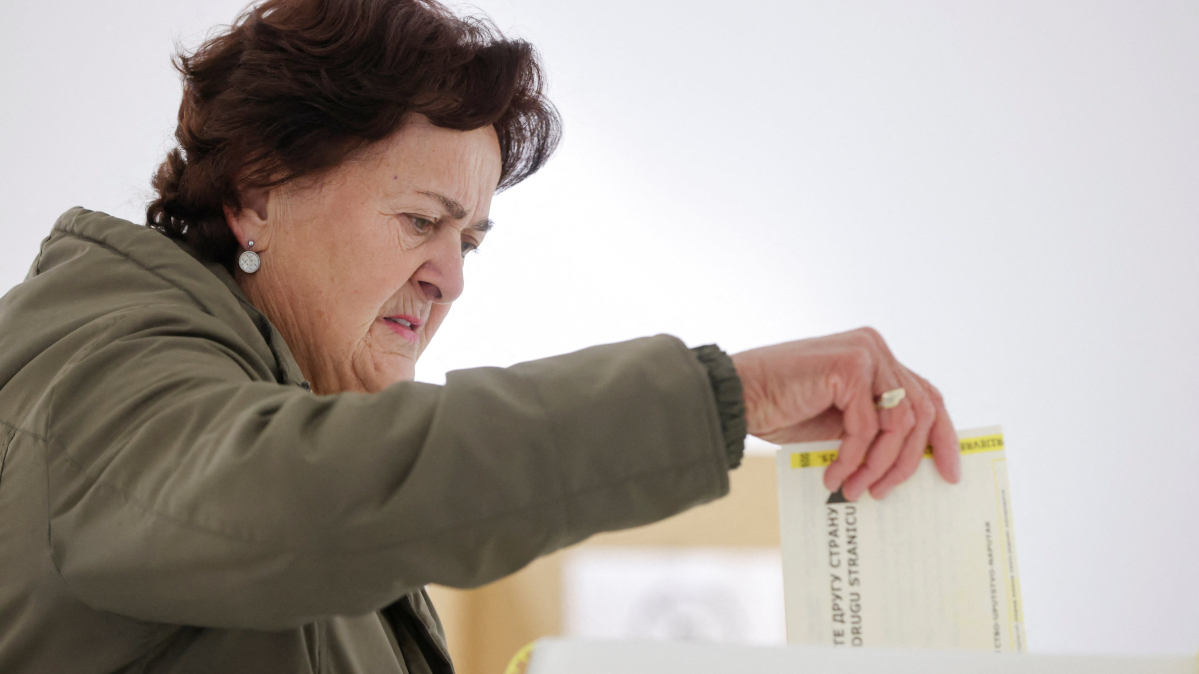Medals awarded in eight disciplines on day nine of Milano-Cortina 2026 Winter Olympics
Medals were awarded in eight disciplines on Sunday as the 2026 Milano-Cortina Winter Olympics continued in Italy....

Voters in Bosnia’s Serb Republic cast ballots for a new president in a snap election on Sunday (23 November), called after former leader Milorad Dodik was removed and barred from politics.
The result is expected to show whether the Serb Republic will move away from Dodik’s nationalist agenda or continue separatist policies that have strained Bosnia’s internal cohesion.
Dodik, described as a pro-Russian separatist, was convicted in February of defying the constitutional court and an international peace envoy. The case triggered what Reuters called Bosnia’s biggest political crisis since the war ended 30 years ago.
The verdict was later upheld by an appeals council and the constitutional court. In October, Dodik unexpectedly appointed a loyal ally as his temporary replacement.
Six candidates are running, with two described as frontrunners. Sinisa Karan of the ruling Alliance of Independent Social Democrats and Branko Blanusa of the Serb Democratic Party. The mandate will last less than a year because a general election is scheduled for next October.
Karan’s campaign message stresses loyalty to Dodik. His posters show both men smiling, and he argues that a vote for him is effectively a vote for Dodik. He currently serves as minister of scientific and technological development in the Serb Republic.
Blanusa, a university professor and new political figure, is backed by most Serb opposition parties. He says he will fight corruption and what he calls “state capture” of resources in the region.
Many people casting their ballots early in Banja Luka said they did not expect real change.
One voter said the public had been left on its own.
“There is nothing to be expected,” Bozidar Knezevic said, adding, “We are left to manage on our own.”
Although the presidency of the Serb Republic is largely ceremonial, Dodik - who has held top roles for most of the past 25 years - had assumed executive control during his periods in office.
Postwar Bosnia and Herzegovina is split between the Serb Republic and the Federation shared by Croats and Bosniaks. The two regions are linked through a central government with limited powers.
More than 1.2 million people are eligible to vote, with preliminary results expected after polls close at 18:00 GMT.
U.S. Ambassador to NATO Matthew Whitaker said China has the power to bring an end to Russia’s war in Ukraine, arguing that Beijing is enabling Moscow’s military campaign.
American figure skating star Ilia Malinin endured a dramatic collapse in the men’s free skate on Friday night, falling twice and tumbling out of medal contention at the Milan Cortina Winter Olympics as Kazakhstan’s Mikhail Shaidorov surged to a surprise gold medal.
Thousands of fans packed River Plate’s Monumental Stadium in Buenos Aires on Friday for the first of three sold-out concerts by Puerto Rican reggaeton star Bad Bunny, as part of his “Debí Tirar Más Fotos” World Tour.
New Zealand declared a state of emergency in Otorohanga on Saturday (14 February) after torrential rain caused severe flooding, power outages and evacuations.
Austria’s Janine Flock won the gold medal in the women’s skeleton event at the Milano-Cortina 2026 Winter Olympics on Saturday.
Medals were awarded in eight disciplines on Sunday as the 2026 Milano-Cortina Winter Olympics continued in Italy.
Hungarian opposition leader Peter Magyar delivered a state of the nation speech in Budapest on Sunday, saying the parliamentary elections in April were an opportunity for his country to take a new direction.
United States prepares for the possibility of sustained, weeks-long military operations against Iran, two U.S. officials told Reuters as the images of the USS Abraham Lincoln carrier strike group sailing and flying in formation were released on Sunday.
The Somali Army carried out a targeted airstrike in southern Somalia, killing 15 al-Shabaab militants, the country’s Defence Ministry said on Sunday.
U.S. Secretary of State Marco Rubio on Sunday (15 February) called it “troubling” a report by five European allies blaming Russia for killing late Kremlin critic Alexei Navalny using a toxin from poison dart frogs.
You can download the AnewZ application from Play Store and the App Store.

What is your opinion on this topic?
Leave the first comment